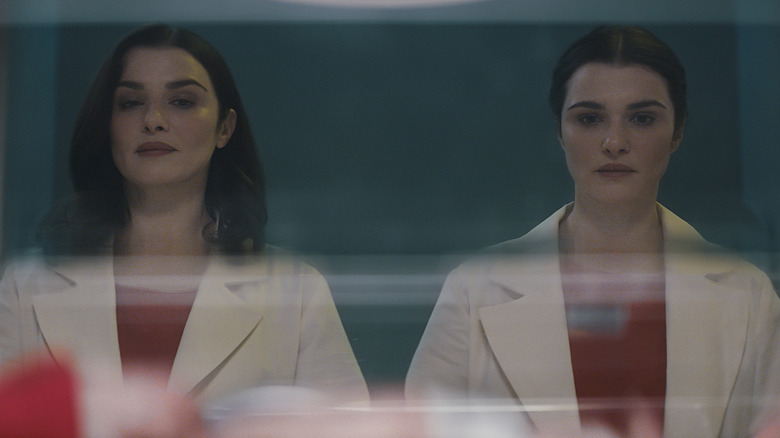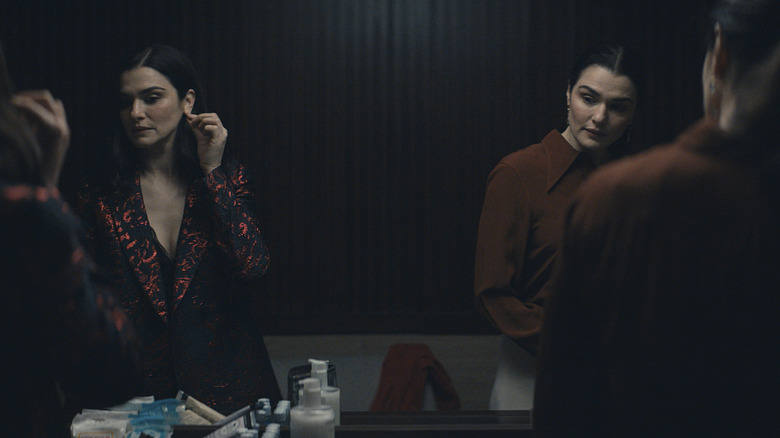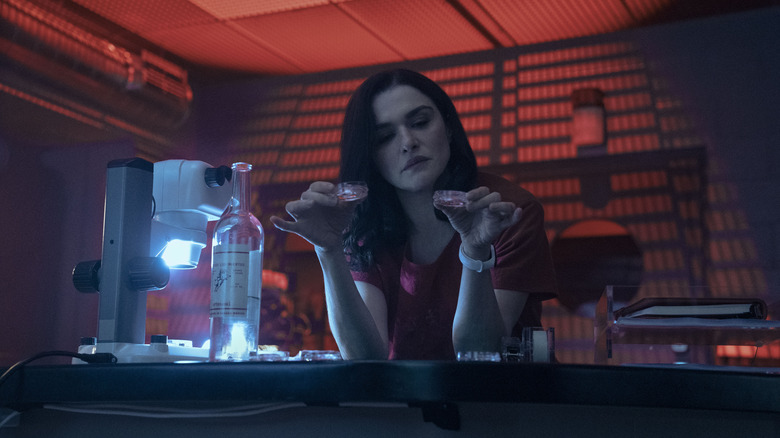Dead Ringers Review: Twice The Weisz Is Twice As Nice
- An exquisite dual performance from Rachel Weisz, which perfectly marries the psychodrama and the black comedy
- The gender-flipped characterization helps the series explore wider medical themes than the original Cronenberg movie
- The other characters aren't written as sharply as the two sisters — and the show's attempts at social satire are often too broad to make an impact
The strange case of Stewart and Cyril Marcus has been the subject of lurid fascination for decades, as storytellers have aimed to unpack how the twin gynecologists wound up dead together in a New York apartment. Authors Bari Wood and Jack Geasland explored this in their heavily fictionalized novel "Twins," which was subsequently transformed by director David Cronenberg into a typically unnerving 1988 film with Jeremy Irons portraying the twins' fictional surrogates Elliot and Beverly Mantle. With each new story inspired by this case, we get further from the original circumstances — and now, it's been brought kicking and screaming into the modern age via the Prime Video miniseries "Dead Ringers," a gender-swapped reimagining of the Cronenberg film that aims to explore much more than a co-dependent sibling relationship.
The six-episode series from creator Alice Birch, a writer for shows including "Succession" and "Normal People," aims to combine the psychodrama with hard-hitting social satire on the relationship between capitalism and healthcare, skewering the super-rich with the same broad brush as recent critically acclaimed movies in the "Triangle of Sadness" vein. Thanks to a blackly comic dual performance from Rachel Weisz, the central character study manages to be balanced with cultural commentary far more delicately than the writing allows for. The show successfully renovates familiar material — but its frequent tangents are a reminder as to why its source novel wasn't adapted as a more expansive miniseries to begin with.
Reinventing the twins
Rachel Weisz plays Elliot and Beverly Mantle, twin characters whose names and personalities haven't been switched alongside their gender. In short, Elliot is the more outspoken of the two at the outset — issuing foul-mouthed, cutting remarks to anybody in her orbit — while Beverly is more reserved, her emotions only bubbling up to the surface after she can no longer suppress them. As in every other iteration of the story, they're gynecologists, but the thrust of the narrative this time is about their ambitions to open an expansive "birthing center" in New York, a sprawling medical complex that aims to find innovative new ways to treat pregnant people.
To do this, they need the financial backing of big pharma, giving us a whistlestop tour of various billionaire ghouls throughout the season; a second-episode detour to a private fundraising dinner with a family who financially profiteered from the opioid crisis is just one of the many invitations into the private lives of the cartoonishly evil super-rich. It provides a wealth of entertaining dark comedy when viewed separate from the rest of the season, making for an enjoyably vulgar companion piece to the recent limited series "Dopesick," but it's never quite as narratively arresting as the core character drama which it's placed next to.
The broad beats of the siblings' story remain the same — Elliot also poses as her comparatively shy twin to secure her a romantic interest (Britne Oldford's Genevieve), as in the David Cronenberg film — but the gender-switch allows it to deviate from its source materials in fascinating ways. Beverly, we learn, is desperate to have a child and start a family, which Elliot views as a major transgression; in one episode, she's pushed to the point of a meltdown by her sibling going on a romantic getaway for the weekend, the first time in their entire lives they've been in separate cities at the same moment.
Their research into new methods to help families get pregnant now has the directly personal stakes previous iterations of this story didn't have, allowing the series to devote more time to exploring the complicated ethics of medical research. These aren't the only ethics the siblings transgress, with Elliot remaining a figure who abuses their power towards their patients — although this isn't depicted quite as extensively as in the 1988 movie, even if it does still lead to many similar ramifications. The power dynamics between the central trio of characters always remain at the heart of the drama, but their equally queasy professional and personal relationships elsewhere are comparatively underwritten. When putting the sisters' relationships with other characters under the microscope, the show reverts to its darkly comic comfort zone, which is consistently amusing (make no mistake, this show is incredibly funny) but doesn't have the same impact as the quasi-love triangle that pushes the twins to their breaking point.
Cronenbergian beyond the body horror
Whereas most filmmakers would lean heavily into body horror when playing in the David Cronenberg sandbox, Alice Birch and her wealth of directorial collaborators (including "Martha Marcy May Marlene" filmmaker Sean Durkin and "Jennifer's Body" director Karyn Kusama) understand that the unease within the story has very little to do with the medical gore, which is mostly covered within one graphic birthing montage early into the first episode. The most unshakeable aspects of "Dead Ringers" draw on the audience's lingering unease towards the dynamics of the sisters' relationship, from their abilities to shift personas in company thanks to their lifelong closeness, to the physical impairment that comes when they spend a decreasing amount of time together.
Few real-life twins have to deal with the toxic co-dependency from their siblings that Elliot brings to the table, but the way in which the series depicts a growing gulf in their relationship manages to ground the more surreal, identity-scrambling aspects of the story in a way that feels eerily palatable. By the series finale, the distance between the sisters is brought to life via the pervasive sound of a phone vibrating consistently throughout the episode — a sibling entirely out of the frame, and yet overwhelming the very form of the episode so vividly it's hard to focus on the drama unfolding on the surface. The show weaponizes a familiar sound from our everyday lives to make a seemingly alien sibling relationship tangible.
Jeremy Irons famously believed the key to his performance as the twins in the 1988 film was that you were never able to tell them apart, even going so far as to mix and match items from their respective wardrobes to keep viewers guessing. The TV adaptation doesn't dine out on this trick, eventually taking viewers behind the curtains with the sisters, making them far less mysterious (if no less complicated) in the process. Losing that mystique doesn't necessarily harm the series, which finds plenty of rich new themes to enrich this material elsewhere, but it does mean that it is ultimately less arresting than the Cronenberg version. That being said, "Dead Ringers" is still one of the better miniseries reimaginings of a feature film I've seen made so far, even if the broadness of its social satire and characterization of its supporting cast makes everything around the sisters far less worthy of attention.
"Dead Ringers" will premiere on Amazon Prime Video on April 21.


